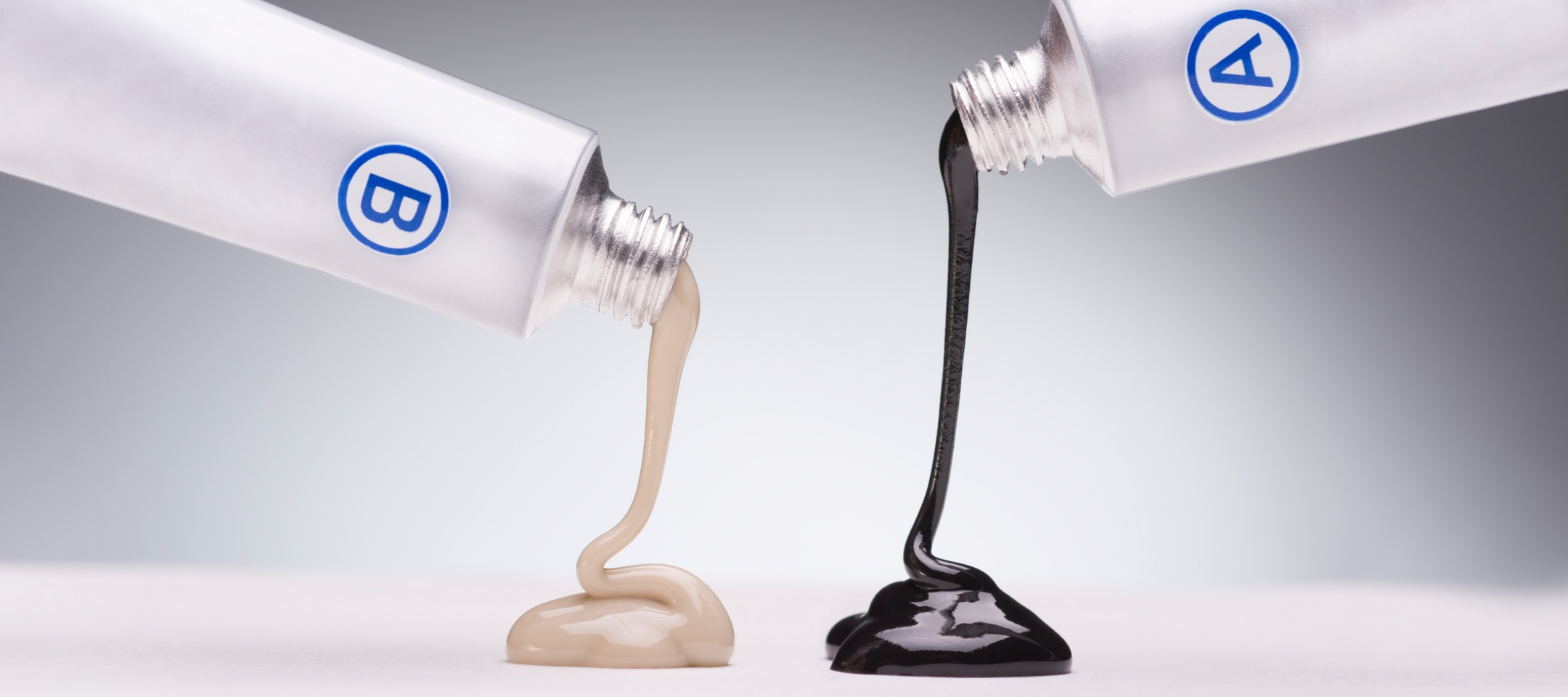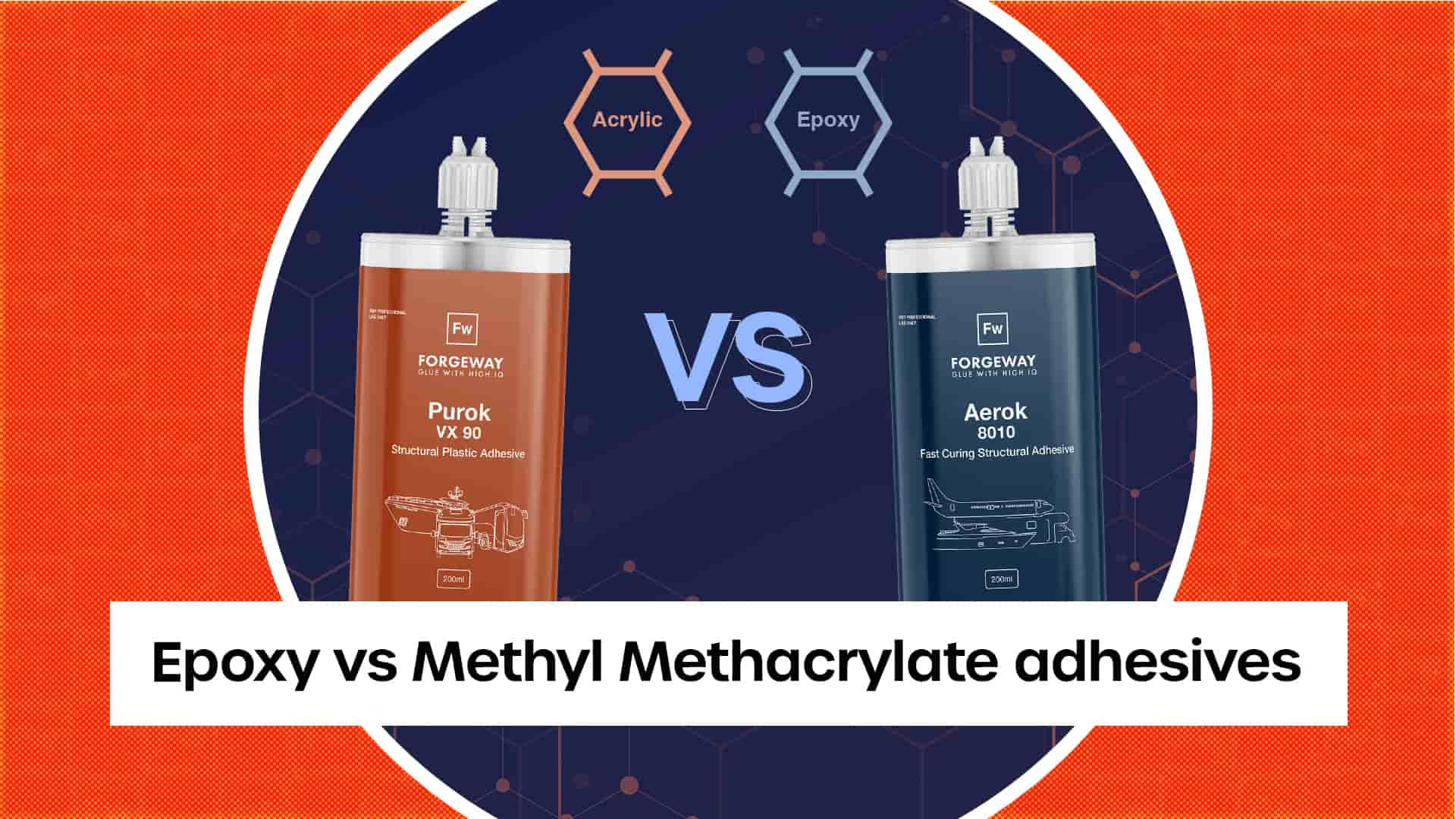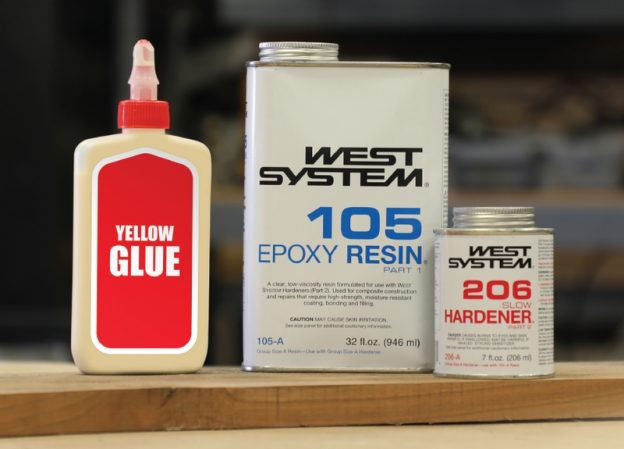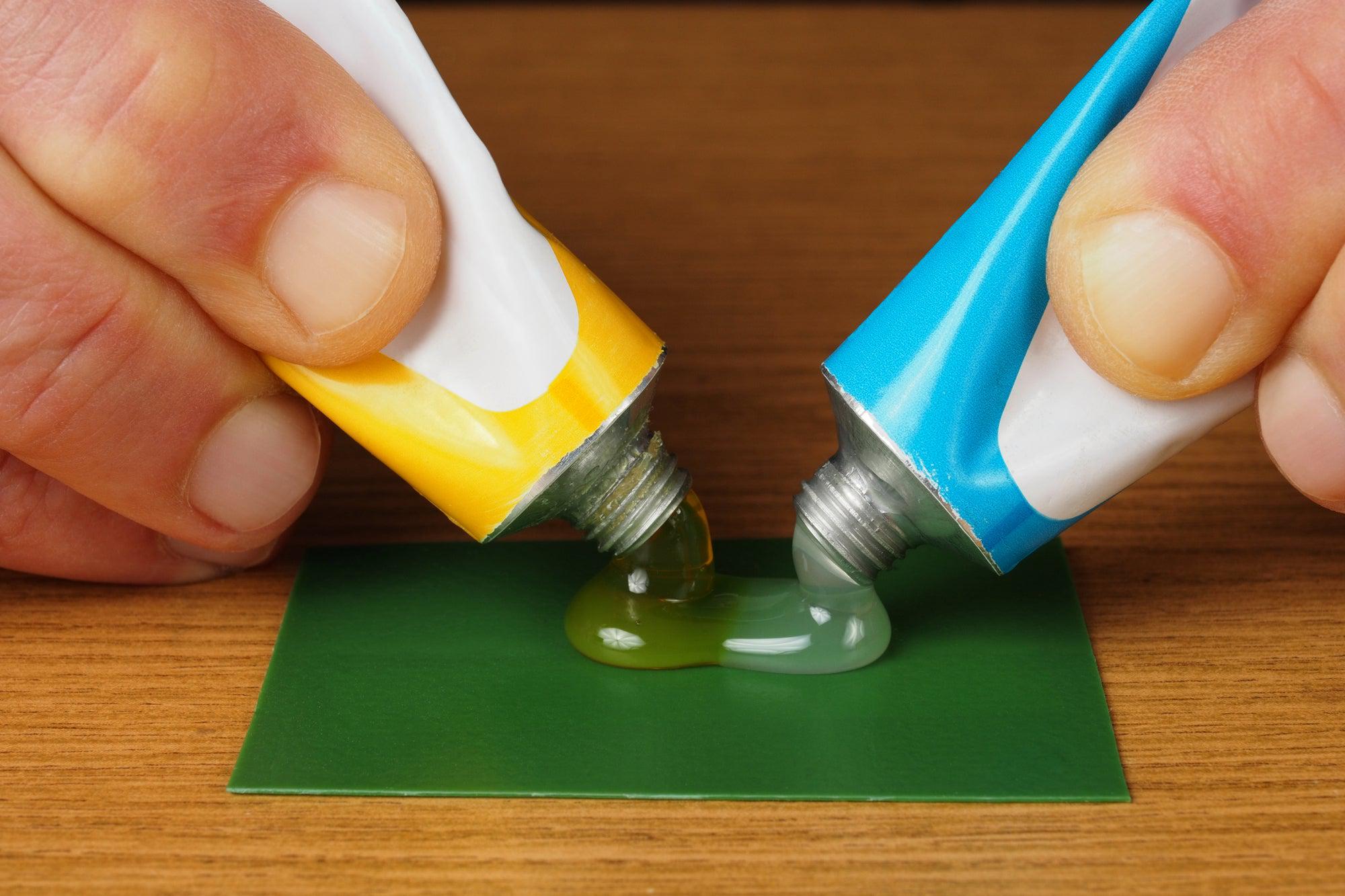Epoxy resin is a versatile material used for coatings and casting, while epoxy adhesive is a strong bonding agent primarily used for joining materials. Epoxy resin is commonly used in art, crafting, and construction industries to create glossy finishes and durable surfaces.
On the other hand, epoxy adhesive is favored in manufacturing and repair applications for its high bonding strength and resistance to chemicals and heat. Both epoxy resin and epoxy adhesive offer excellent adhesion properties and versatility, making them essential materials in various fields.
Understanding the differences between epoxy resin and epoxy adhesive can help you choose the right product for your specific project needs.

Introduction To Epoxy Compounds
Epoxy compounds are widely used in various industries for their exceptional adhesive and bonding properties. Epoxy resin and epoxy adhesive are two common types of epoxy compounds that are often confused with each other. It is important to understand the differences between them to choose the right compound for a specific application.
Epoxy resin is a thermosetting polymer that is commonly used for coating and laminating purposes. It is known for its high strength, excellent electrical insulation properties, and resistance to chemicals and heat. On the other hand, epoxy adhesive is a type of glue that is used for bonding different materials together. It provides strong adhesion, durability, and resistance to moisture and temperature variations.
The core properties of epoxy compounds include high strength, low shrinkage, and excellent chemical and temperature resistance. These properties make epoxy compounds suitable for a wide range of applications, including construction, automotive, electronics, aerospace, and marine industries. They are commonly used for bonding, sealing, coating, and encapsulating various materials like metals, plastics, ceramics, and composites.
In conclusion, epoxy compounds, including epoxy resin and epoxy adhesive, are versatile materials with unique properties that make them indispensable in many industries. Understanding their core properties and common uses can help in selecting the right compound for specific applications.

Epoxy Resin: Composition And Characteristics
Key Ingredients in Epoxy Resin: Epoxy resins are composed of epoxide and polyamine hardeners. These components undergo a chemical reaction to form a durable and versatile material. Epoxy resins are known for their excellent adhesion and chemical resistance.
Physical and Chemical Properties: Epoxy resins exhibit high strength, low shrinkage, and good thermal stability. They are also resistant to moisture and chemicals, making them suitable for various applications in coatings, adhesives, and composite materials.
Epoxy Adhesive: Understanding The Basics
Epoxy adhesive, also known as epoxy resin, is a versatile and durable bonding agent widely used in various industries. The formulation of epoxy adhesive involves a combination of epoxy resin and a hardening agent, which results in a strong and adhesive substance. Its unique chemical composition allows it to bond well with a wide range of materials, including metals, plastics, ceramics, and even wood.
One of the key advantages of epoxy adhesive is its exceptional bonding capabilities and strength. It forms a strong bond that can withstand high levels of stress, making it ideal for applications that require long-lasting and reliable adhesion. The adhesive also offers excellent resistance to chemicals, temperature variations, and moisture, ensuring durability in challenging environments.
Whether you are looking to bond two different materials together or repair damaged parts, epoxy adhesive provides a reliable solution. Its versatility, strength, and durability make it a popular choice in industries such as construction, automotive, aerospace, and electronics.
Application Techniques
When working with epoxy resin, ensure that the surface is clean and free from any dust or debris. Properly mix the resin and hardener according to the manufacturer’s instructions to achieve the desired results. Additionally, it’s important to apply the resin in thin layers to prevent air bubbles and allow for proper curing. Moreover, using a heat gun or torch can help to remove any air bubbles that may have formed during the application process.
For epoxy adhesive, it’s crucial to prepare the surfaces to be bonded by cleaning them thoroughly and roughening them to promote adhesion. Apply the adhesive evenly and clamp the parts together firmly to ensure a strong bond. Moreover, allowing sufficient curing time is essential before subjecting the bonded items to any stress or load. In addition, following the manufacturer’s guidelines for temperature and humidity conditions during application is important for optimal results.
Curing Processes Compared
Curing Epoxy Resin: Epoxy resin cures through a chemical reaction between the resin and hardener, leading to a strong and durable material. The curing process can be accelerated by applying heat or using UV light.
Curing Epoxy Adhesive: Epoxy adhesive cures by the hardener initiating the polymerization process, creating a tough and resilient bond. The curing time can vary based on factors such as temperature and humidity.

Durability And Resistance
Epoxy resin offers exceptional durability due to its high resistance to chemicals and moisture. Its ability to withstand harsh environmental conditions makes it ideal for various applications. On the other hand, epoxy adhesives exhibit excellent resistance to impact and vibrations, ensuring long-lasting bonds. When it comes to longevity, both epoxy resin and adhesive provide lasting durability, but their specific properties cater to different needs.
Safety And Environmental Considerations
Epoxy resin and epoxy adhesive have different safety and environmental considerations. Epoxy resin may release harmful fumes during the curing process, requiring proper ventilation. Epoxy adhesives often contain solvents, necessitating caution to minimize exposure and environmental impact. Understanding these differences is crucial for safe and eco-friendly use.
| Handling Epoxy Safely: Wear gloves and protective clothing when working with epoxy. |
| Environmental Impact of Epoxy Materials: Epoxy resins can release harmful fumes during curing. |
Cost Implications And Accessibility
The cost implications and accessibility of epoxy resin and epoxy adhesive differ significantly. Epoxy resin is often more expensive due to its versatility and durability, making it suitable for a wide range of applications. On the other hand, epoxy adhesive is more accessible and cost-effective, making it a popular choice for bonding and repairs.
Choose the option that best suits your specific needs and budget.
| Epoxy Resin | Epoxy Adhesive |
| Higher initial cost | Lower upfront price |
| Widely available in craft stores | Commonly found in hardware shops |
Choosing Between Epoxy Resin And Adhesive
When deciding between epoxy resin and adhesive, it’s important to consider the specific application. Epoxy resin is ideal for creating a glossy, protective finish on surfaces, while epoxy adhesive is best for bonding materials together with high strength and durability.
Understanding the differences will help you choose the right option for your project.
| Epoxy Resin | Epoxy Adhesive |
| Used for casting and coating projects | Ideal for bonding materials together |
| Provides a glossy and durable finish | Offers strong and permanent adhesion |
| Requires accurate mixing ratios for best results | Easy to use with quick curing times |
Future Trends In Epoxy Technology
Epoxy Resin and Epoxy Adhesive are both vital in the field of epoxy technology. The future trends in this industry are marked by constant innovations in epoxy formulations, leading to their enhanced performance and versatility. These innovations are opening up emerging applications in various industries, from construction and aerospace to healthcare and electronics. The continuous development in epoxy technology is driving the expansion of its uses and capabilities, making it an indispensable material in modern manufacturing and production processes.
Frequently Asked Questions
What Is The Difference Between Epoxy Resin And Epoxy Adhesive?
Epoxy resin is a two-part liquid that hardens to a clear, glossy finish, while epoxy adhesive is a bonding agent used to join materials together. Resin is typically used for coating surfaces or creating small crafts, while adhesive is used for larger projects or structural bonding.
Can Epoxy Resin Be Used As An Adhesive?
Yes, epoxy resin can be used as an adhesive, but it may not be as strong as a dedicated epoxy adhesive. Resin is better suited for coating surfaces or creating small crafts, while adhesive is designed to bond materials together and withstand stress and pressure.
What Are The Benefits Of Using Epoxy Adhesive Over Epoxy Resin?
Epoxy adhesive provides a stronger, more durable bond than epoxy resin. It can also be used on a wider range of surfaces and materials, and is better suited for larger projects or structural bonding. Additionally, epoxy adhesive sets more quickly than epoxy resin, making it a more efficient option for time-sensitive projects.
Are There Any Safety Precautions To Take When Working With Epoxy Resin And Adhesive?
Yes, it is important to wear protective gear such as gloves and goggles when working with epoxy resin and adhesive. These materials can be harmful if they come into contact with skin or eyes. It is also important to work in a well-ventilated area and follow the manufacturer’s instructions for proper use and disposal of the materials.
Conclusion
Both epoxy resin and epoxy adhesive have their unique applications and properties. Epoxy resin is ideal for high-gloss finishes and creating art pieces, while epoxy adhesive is perfect for bonding various materials. Understanding the differences between these two products can help users make an informed decision when selecting the appropriate product for their project.
Always read the product label and follow the manufacturer’s instructions carefully to achieve the best results.

